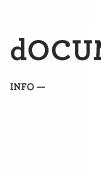ENGLISH
Bruno Bosteels: What is an Event?
Under the direction of the German philosopher Christoph Menke and in collaboration with Chus Martínez, the seminar What is Thinking? Or a Taste that Hates Itself is a series of twelve two-part sessions focusing on the relationship between art and philosophy, between thinking and perceiving. It is an attempt to address the questions and the methods of philosophy for those who are curious but not necessarily close to the field. Each session is divided into a public lecture every Monday evening in the Ständehaus, followed by a more intimate discussion seminar on Tuesday mornings in the Zwehrenturm of the Fridericianum.
In September 1959, the philosopher Theodor W. Adorno gave a lecture on the occasion of documenta 2. A few days earlier, he had mentioned in a letter to Max Horkheimer his interest in visiting the exhibition, in seeing what culture—art—could do after the greatest collapse that the country and the world had ever experienced. This lecture, "The Idea of New Music” (Die Idee der neuen Musik), is of key significance to dOCUMENTA (13). It is read and commented upon by Albrecht Wellmer at the opening of the exhibition and by Carla Harryman at the end, as the inspiration and source for a reflection on the importance of deeds, like art, and thoughts, like philosophy, that are less driven by aims and results, than guided by values.
The What is Thinking? seminar is a rigorous meditation on language, on meaning, on the limits and possibilities of skepticism, on imagination as the ground for social democracy, and on art and experience. It aims to contribute to an understanding of the importance of an art exhibition with the history and tradition of documenta, as a crucial space for the community to respond to questions of ethical and aesthetic significance.
The idea of the event has in recent decades become a common denominator for discussions in art, politics, history, and philosophy. The work of thought in these areas can be said to consist in having to think not just whether this or that is an event, but whether the event-like nature of an event can be thought in the first place, without reducing it to a fact. Different orientations have addressed this second, larger question, with important consequences for our ability to answer the first one. In my talk I will address two of these orientations: the formalization proposed by Alain Badiou and the deconstruction suggested by Jacques Derrida.
The seminar sessions can be attended individually or in full. Texts and other materials for the sessions are available online.
Texts:
Bruno Bosteels "Event," Encyclopedia of Political Theory, ed. by Mark Bevir, vol. 2, Routledge (2010), pp. 878-880
http://www.scribd.com/doc/98411223/Bosteels-Event-Entry-for-Encyclopedia
Jacques Derrida "On a certain possible impossibility of saying the event," Critical Inquiry, Vol. 33, No. 2 (Winter 2007), pp. 441-461.
http://www.scribd.com/doc/97952959/Derrida-a-Certain-ImpossiblePossibility-of-Saying-the-Event

















